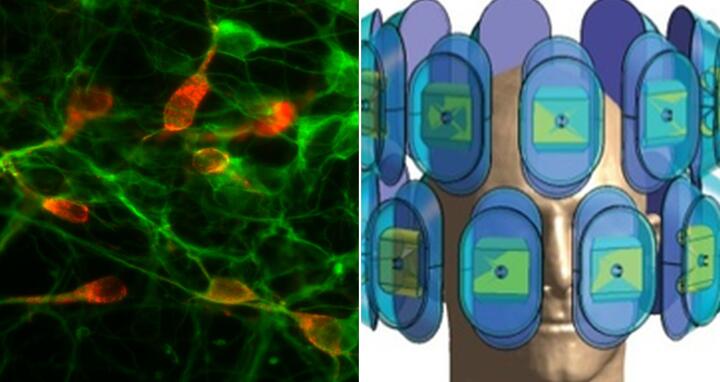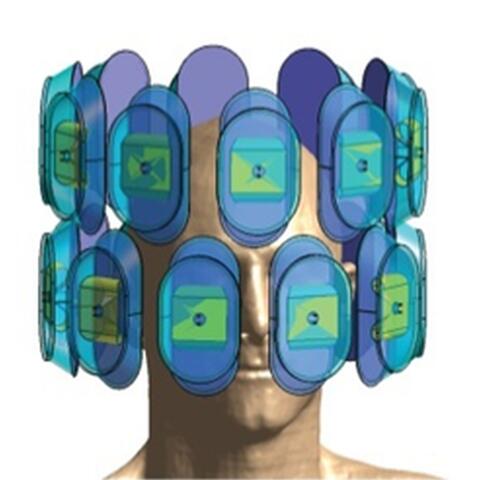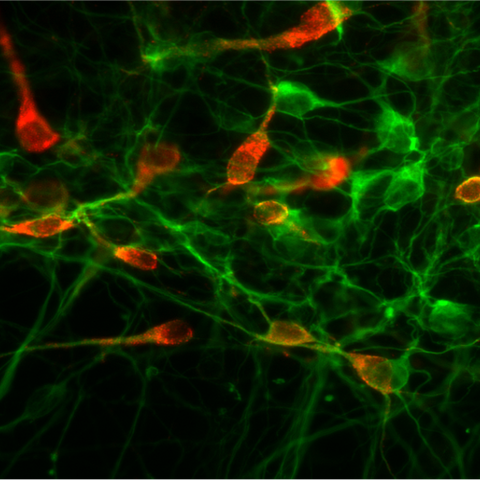New PhD programs kick off at the MDC
Whether it’s turning up the heat on cancer cells or scrutinizing a small signaling molecule that can trigger mental illnesses, two new Marie Skłodowska-Curie Innovative Training Networks (ITNs) are gearing up to train outstanding PhD students in multimodal cancer therapies and neuronal development. Application for one of the scholarships is already open.
In addition to the Max Delbrück Center for Molecular Medicine in the Helmholtz Association (MDC), ten other members of the consortium such as universities, university hospitals and non-university research institutions as well as several non-academic partner organizations are involved in both programs. The proposals for “Hyperboost” and “Serotonin and Beyond” were revised several times before they were successful in a highly competitive call under the EU’s Horizon 2020 research and innovation framework program.
Developing effective cancer therapies
In this way, we can increase elevated temperatures in specific areas in the body and monitor it via MRI scanners for diagnostic and therapeutic purposes.
Elevating the body’s temperature can enhance the effectiveness of radiation therapies. Chemotherapy used in combination with hyperthermia – the heating of tumor tissue to temperatures of 40–44°C – contributes to tumor shrinkage and helps cancer patients live longer.
Computer simulation of a high-frequency applicator for MR-tomography that controls hyperthermia in the brain.
The aim of the program “Hyperboost” is the interdisciplinary training of specialists who combine expertise in physics, bioinfomatics and biology with experience in clinical and preclinical studies. This is only achievable by taking an integrative and holistic approach. The participating 14 PhD students will jointly contribute to the development of highly effective personalized cancer therapies.
While the junior researchers at the other consortium members will investigate the molecular mechanisms of hyperthermia at the cellular level, the PhD candidate at the MDC will develop a special magnetic resonance imaging (MRI) technique. “High-frequency radiation generates heat,” explains Professor Thoralf Niendorf. “In this way, we can increase elevated temperatures in specific areas in the body and monitor it via MRI scanners for diagnostic and therapeutic purposes.”
Niendorf, who leads the Experimental Ultrahigh-Field MR Lab at the MDC, conducts research into temperature-dependent processes in living tissue and will now supervise the new addition to the MDC. The aspiring doctoral student will plan, build, and ultimately test the technology in clinical studies over a three-year period. The team collaborates closely with the Department of Radiation Oncology and Radiotherapy at Charité – Universitätsmedizin Berlin. The coordinator of the network, which will start in December 2020, is the University of Amsterdam in the Netherlands. The application process is already running but not yet completed. The Niendorf lab will help with further information.
A new approach to psychiatric drugs
Many drugs used to treat mental disorders target serotonin – a substance in the brain that helps nerve cells communicate with each other and influences many physiological processes. “But in some patients with mental disorders common drugs have no effect,” says Dr. Natalia Alenina from the MDC, who will be supervising two “Serotonin and Beyond” PhD fellows in Professor Michael Bader’s research lab.
Serotonergic neurons (red) in the mouse brain.
In addition to functioning as a signaling molecule, serotonin also plays a role in embryonic and early childhood brain development. “Yet drugs often neutralize disturbances in serotonin neurotransmission – rather than targeting the developmental processes in the brain that are altered by serotonin,” Bader says, who heads the Molecular Biology of Peptide Hormones Lab at the MDC. He suspects this is why such drugs are ineffective in some patients.
Yet drugs often neutralize disturbances in serotonin neurotransmission – rather than targeting the developmental processes in the brain that are altered by serotonin.
The two PhD students in Bader’s team will now investigate fundamental genetic and environmental factors that influence serotonin levels during brain development. They are studying such factors in the brains of mice and rats, which either carry themselves genetic alterations in proteins responsible for serotonin synthesis or metabolism, or experienced disturbances in maternal serotonin supply during development.
The colleagues in the consortium investigate how serotonin-mediated developmental processes affect cognition and behavior and can lead to mental disorders. In this way, all 15 participating PhD students are jointly contributing to finding new targets for therapies. The training program and the MDC application process starts in January 2021, further information about the procedure will be provided by the Bader lab. The network is coordinated by the Stichting Katholieke Universiteit in Nijmegen, the Netherlands.
About the ITNs
The funding by the European Union covers salaries as well as additional funding of research costs, travel, coordination and management of all activities that take place within the network.
During their three-year fellowship, PhD candidates of all consortium members receive first-class supervision by experienced experts and attractive opportunities for further education, professional exchange and networking. They can work for several months at another consortium member or one of the participating partner organizations in order to gain intersectoral experience, e.g., in preclinical research, clinical practice or an industry setting and to establish contacts with future employers.
Text: Christina Anders
Weiterführende Informationen
- PhD at the MDC
- The Hyperboost Program
- ERC funding for two MDC scientists
- The Serotonin and Beyond Program
- ITNs of the European Commission









